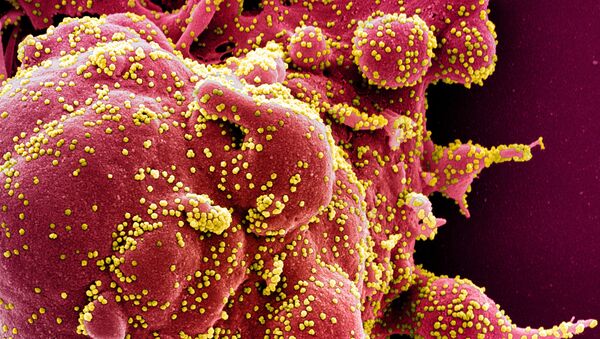Previous theories about warmer weather kicking the novel coronavirus to the curb have been further discredited after the Saturday publication of the French research paper “Evaluation of heating and chemical protocols for inactivating SARS-CoV-2” on bioRxiv.
Within the paper, Professor Remi Charrel and colleagues from southern France’s Aix-Marseille University detailed that the novel coronavirus can be heated to 60 degrees Celsius for an entire hour and still have some surviving strains replicate afterward.
This 60-degree, 60-minute rule has been historically used in lab settings to suppress fatal viruses, such as Ebola, according to the South China Morning Post.
However, when the virus was exposed to a temperature of 92 degrees Celsius for only 15 minutes, it was rendered completely inactive. While the 60-degree heating could result in a deactivation of a sample with a low viral load, the 92-degree test proved more effective.
The outlet highlighted that there is an understandably high demand to perform tests on the novel coronavirus, and because some tests are done in labs with lower protections, the COVID-19 samples have to be destroyed.
“The results presented in this study should help to choose the best suited protocol for inactivation in order to prevent exposure of laboratory personnel in charge of direct and indirect detection of Sars-CoV-2 for diagnostic purpose,” the authors detailed.
Just last week, the National Academies of Sciences published a report directed to the White House that explained the summer’s warmer temperatures would have little impact on the spread of the novel coronavirus in the US - the world’s leading country in COVID-19 cases and deaths.
“There is some evidence to suggest that SARS-CoV-2 may transmit less efficiently in environments with higher ambient temperature and humidity,” the report read.
“However, given the lack of host immunity globally, this reduction in transmission efficiency may not lead to a significant reduction in disease spread.”
Researchers also highlighted that this “evidence of seasonality” is also not found in other, similar respiratory illnesses, such as severe acute respiratory syndrome (SARS) and Middle East respiratory syndrome (MERS).


